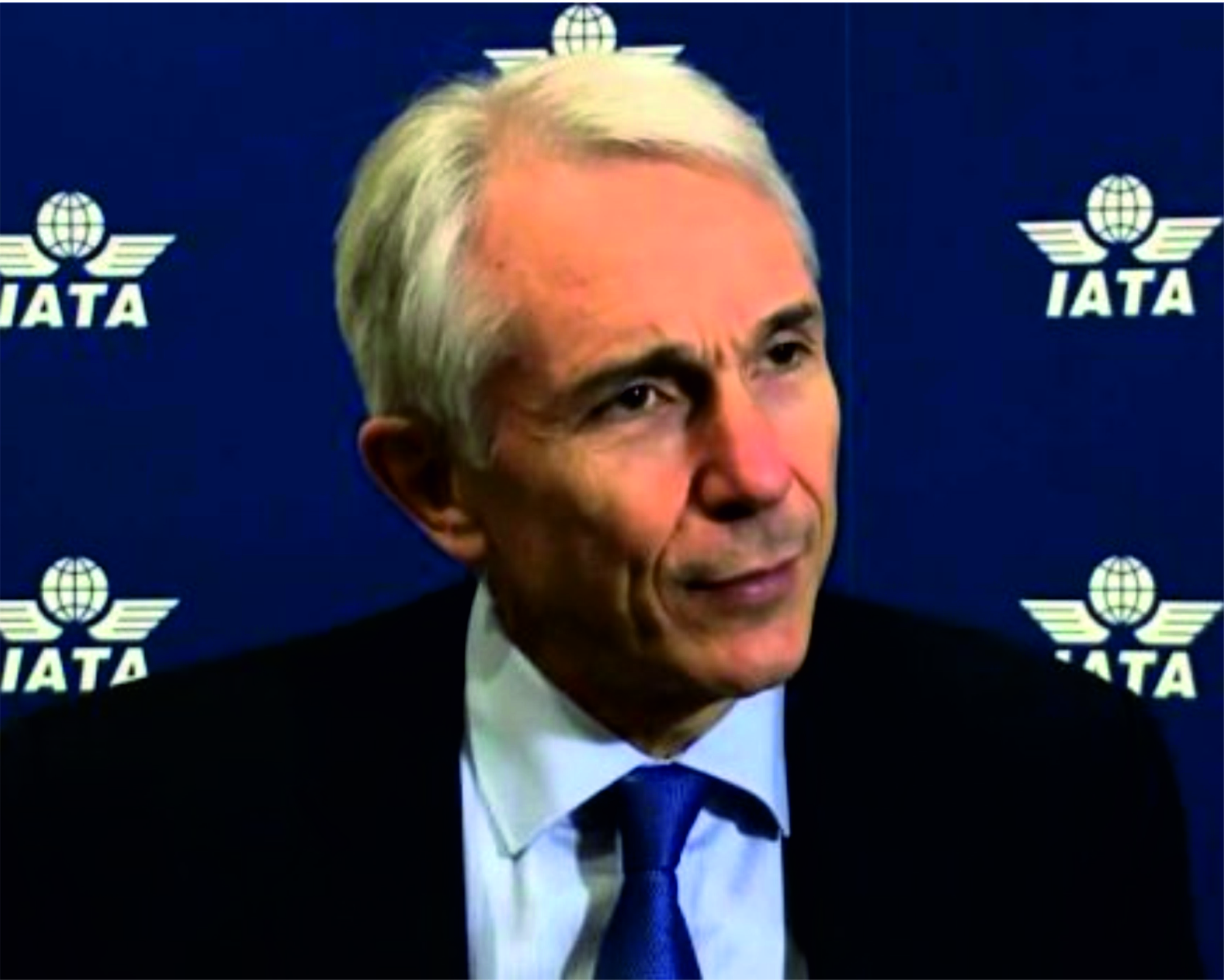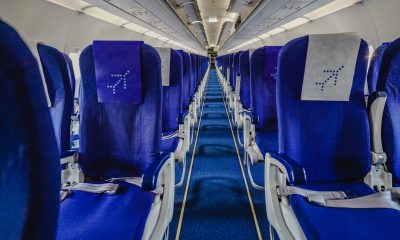Aviation
IATA/Africa’s Aviation: Tyler’s exit may be costly
Published
10 years agoon
By
Olu Emmanuel
By ISAAC TERSOO AGBER
EXPERTISE and a humane disposition are qualities of a good leader, especially one with a towering frame, warm infectious smiles and a persuasive voice that speaks reason. That is a perfect match for the outgoing Chief Executive Officer of International Air Transport Association (IATA), Mr. Tony Tyler. When it was announced in August 2015 that he would retire in June 2016 after serving for five years, many could ponder the reality of the tall absence that will be felt in the association and, particularly, in Africa’s aviation.
Tyler brought his personality into the leadership of IATA which was of advantage to Africa, a region that has faced challenges over time as an emerging aviation zone. He has been regular at Africa’s top airline gatherings of AFRAA and AASA, deepening partnership with airline operators, reports have shown. He was at home with the challenges in Africa, and pursued fit-for-purpose strategies for the continent, especially on air transport liberalization with sincerity of purpose.
To capture a few testimonies from some African aviation stakeholders, Dr. Elijah Chingosho, Secretary General of AFRAA once said: “Being a passionate believer that aviation is a force for good in the world, IATA commissioned a study by InterVistas of 12 African States which showed the huge economic and social benefits of better connectivity through a fully liberalised operating environment. The study was instrumental in convincing African stakeholders of the need to fully liberalise intra-Africa traffic as a matter of urgency.”
Secretary General of the Airports Council International (Africa Region), Mr. Ali Tounsi, said: “Mr. Tyler has consistently championed the cause of liberalization in the region and promoted connectivity as a driver of social and economic progress.”
Mr. Tyler helped rejuvenate the Yamoussoukro Decision (YD), giving it a fresh and future outlook; just as the African Civil Aviation Commission (AFCAC) sought to realign the Decision with today’s industry realities. Mr. Tyler was not expected to coerce governments to heed the call for opening up of air services in Africa. But he did deploy persistent tactics of demonstrating the abundant benefits of more liberal air service regimes; thus African leaders could see what policy barriers have cost their States over the decades, and how opening up markets would advantage their citizenry and economies going forward.
ALSO SEE: African Aviation: Has the lucrative Accra-Lagos route collapsed?
Safety Improvements
Importantly, IATA and Tyler’s achievements in Africa have been more resounding nowhere else than in safety, the industry’s number one priority. Mr. Zweigenthal said in this regard: “Tony also promoted the improvement of safety through the implementation of the IOSA programs for both IATA and non-IATA airlines. Through all these programs, his commitment and interest, Tony has left a positive mark on African aviation.”
Dr. Chingosho equally noted: “Tony is very passionate about enhancing the safety culture in African aviation and in this regard IATA helped several African airlines with capacity building to help them obtain IOSA registration in conformity with the Abuja targets of 2012.”
“As of May 2016, Africa has at least 45 IOSA registered airlines. Safety standards on the continent have been steadily improving as a result of the inculcation of a safety culture and we have seen decline in accidents on the continent.”
What may still be tough for African airlines as always is the overall cost of undergoing these crucial audits, even though IATA introduced some helping hand to encourage more African airlines step up to the safety audits. Many airlines would expect IATA to further mitigate the cost burden, as more African airlines are willing and eager to enlist on the IOSA register.
Furthermore, under Mr. Tyler’s watch, Dr. Chingosho also said, AFRAA and IATA have collaborated very closely in joint lobbying for reduced industry costs, focusing on the high taxes, charges and fees on fuel and passengers which are much higher than industry average.
IATA and AFRAA also jointly lobby for elimination of monopoly service providers in areas such as fuel supply, ground handling and catering where it is possible to provide much needed competition and affording airlines the opportunity to make their choice of service providers.
Mr. Tyler also gave attention to airports, calling for airports to work more closely with airlines in providing needed airport facilities to avoid wasteful capital expenditure. According to Mr. Tounsi of ACI-Africa, Mr. Tyler “has pointed out the strong need for infrastructure development and safety enhancements.”
Mr. Tounsi further stated: “During his tenure as Director General and CEO of IATA, Tony Tyler has been a great friend to African aviation. There are many synergies between his values and those of ACI Africa; and he has voiced his opinion on high taxes on aviation hampering the industry and the economic development that it fuels.”
And more recently, Mr. Tyler has stepped in to broker solutions in States where policies tend to conflict with interest of airlines. For instance, Mr. Tyler was in Nigeria recently to help resolve frictions over repatriation of revenue which had led affected airlines to devise strategies bringing anguish to passengers.
The new page for IATA, any hope for Africa?
IATA’s in-coming DG/CEO, would be joining at a crucial time when industry takes critical decisions on the emissions question at the up-coming ICAO General Assembly in September 2016. There are also issues of regulation of drones, security, global liberalization and harmonization of policies, etc. The new DG/CEO is also to raise IATA’s partnership with Africa towards enhancing the development of the world’s last emerging aviation frontier to benefit airlines.
Mr. Chingosho has already expressed confidence in the in-coming IATA leader: “With his wide and broad experience in Government and industry, AFRAA is confident that the new IATA DG & CEO, Alexandre de Juniac, will be a great leader for IATA. With his previous business associations with Africa while both in Government and industry, we believe that he will work closely with AFRAA so that together we can effectively confront and resolve the numerous challenges staked against African aviation.
“We hope that under his leadership, relations between AFRAA and IATA will grow even stronger. We look forward to welcoming Mr. Juniac to Africa,” Mr. Zweigenthal says, adding that Mr. de Juniac’s “wealth of experience” would allow him understand the many challenges within Africa, “given his previous position as CEO of Air France / KLM, two airlines who have extensive experience and success in their operations to many destinations in Africa.”
ALSO SEE: Exploiting the economic potentials of the Nigerian aviation industry
He expects Mr. Juniac will continue to support the work of IATA and the Regional Associations in the region, and would probably continue to focus on the need for liberalization and continued improvement of safety and security throughout the continent, amongst other programs.
Tounsi already anticipated continuity of synergy with Mr. de Juniac: “I look forward to meeting the incoming Director General and CEO of IATA as soon as possible. He has been invited to the ACI World Annual General Assembly, Conference and Exhibition, to be held in September in Montreal, and we look forward to his participation as we not only continue the strong collaboration that we enjoyed with Mr. Tyler, but also turn the page to what we hope will be an era of even closer partnership between the two organizations.”
Mr. Tyler is also positive of his successor’s impact at IATA. “”Alexandre will be a great leader for IATA. He knows the business well and brings valuable experience from both government and industry.
I am sure that he will keep IATA close to its members and fully focused on delivering the value that they expect from their association. I can’t think of a better person to lead the IATA team and I look forward to handing over the job in a few months’ time. Until then, I remain fully committed to my duties and await an exciting AGM in Dublin with great interest,” said Tyler.
The Board of Directors of Air France-KLM Group said of Juniac that he is “outstanding in his work by achieving the group’s economic and financial recovery, enhancing its range of services and winning back customers.” This pedigree, presumably, bodes well for IATA and Africa’s future partnership, as Mr. de Juniac is expected to the reins as IATA DG/CEO in August 2016.
You may like


FX unification: Air travelers told to brace up for volatile, unpredictable air fares


IATA suspends Arik from airline’s financial system


African carriers record 6.8% decrease in global freighting – IATA


Nigeria’s aviation to suffer worse decline 2016, NBS forecasts


FG to tackle high mortality rate of indigenous airlines — Expert


MMIA fifth busiest airport in Africa – IATA
Trending

 Entertainment1 week ago
Entertainment1 week agoSinger Simi sparks debate after calling for death penalty for rapists

 Business1 week ago
Business1 week agoNaira mixed across markets as official window dips, parallel market strengthens

 Business1 week ago
Business1 week agoNaira hits N1,337 against Dollar amid positive market sentiment

 Football1 week ago
Football1 week agoUCL Playoff: Gordon scores four as Newcastle thrash Qarabağ 6-1

 Entertainment1 week ago
Entertainment1 week agoTems, Burna Boy set new African record with most entries on Billboard hot 100

 Entertainment6 days ago
Entertainment6 days agoSinger Simi faces backlash after TikToker admits to false rape allegation

 Latest1 week ago
Latest1 week agoLegal constraints, not connectivity, delay electronic results — Igini

 Latest1 week ago
Latest1 week agoTinubu defends electoral reform, downplays mandatory real-time upload

